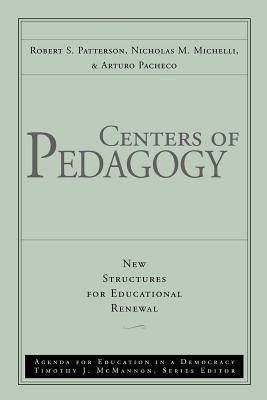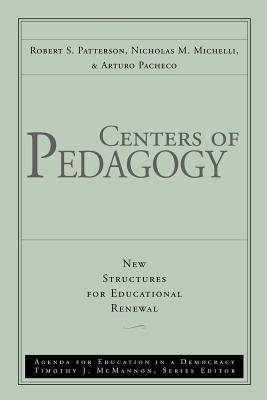
- Retrait gratuit dans votre magasin Club
- 7.000.000 titres dans notre catalogue
- Payer en toute sécurité
- Toujours un magasin près de chez vous
- Retrait gratuit dans votre magasin Club
- 7.000.0000 titres dans notre catalogue
- Payer en toute sécurité
- Toujours un magasin près de chez vous
Centers of Pedagogy Educational Renewal
New Structures for Educational Renewal
Robert S Patterson, Nicholas M Michelli, Arturo PachecoDescription
From the Agenda for Education in a Democracy Series
Sponsored by the National Network for Educational Renewal
Afterword by John I. Goodlad
"Everyone wants to transform teacher education. Most agree that transformation can only occur when arts and science faculty, teacher educators, and K-12 practitioners join together. Intended for provosts and college deans, school leaders and university faculty, this book provides guidance on achieving that transformation through a structural innovation called a Center of Pedagogy."
--David G. Imig, chief executive officer, American Association of Colleges for Teacher Education
"From vision to reality--this book provides a rationale and illustrations of ways to build bridges among the arts and sciences, education, and partner schools to create a faculty devoted to strengthening teacher preparation and schooling."
--Jan Kettlewell, assistant vice chancellor for academic affairs, University System of Georgia
"Administrators and teacher educators interested in and committed to building school-university partnerships ought to read Centers of Pedagogy. It will help dedicated and determined educators committed to systemic change to better respond to the challenges they face."
--Robert V. Bullough, Jr., professor of educational studies, The University of Utah
This volume in the Agenda for Education in a Democracy series examines a growing movement of schools and universities collaborating in ways that break down traditional barriers and promote systemic educational renewal. Centers of Pedagogy offers apractical framework for advancing university-school collaborationon educational improvement. The authors draw from their diverse experiences as university deans and focus on the Centers of Pedagogy model, a strategy conceived by John Goodlad and refined by participating institutions in the National Network for Educational Renewal. Under this model, faculty in teacher education, the arts and sciences, and the P-12 schools work together to provide aspiring teachers with a well-rounded education. This collaboration ultimately improves school curricula, teaching practice, and the education of educators. Featuring case examples from a variety of successful partnership programs, this book studies the policies, organizational structures, and other key conditions needed to establish such vital centers.
Spécifications
Parties prenantes
- Auteur(s) :
- Editeur:
Contenu
- Nombre de pages :
- 288
- Langue:
- Anglais
- Collection :
- Tome:
- n° 2
Caractéristiques
- EAN:
- 9780787945619
- Date de parution :
- 22-03-99
- Format:
- Livre broché
- Format numérique:
- Trade paperback (VS)
- Dimensions :
- 150 mm x 225 mm
- Poids :
- 353 g

Les avis
Nous publions uniquement les avis qui respectent les conditions requises. Consultez nos conditions pour les avis.






